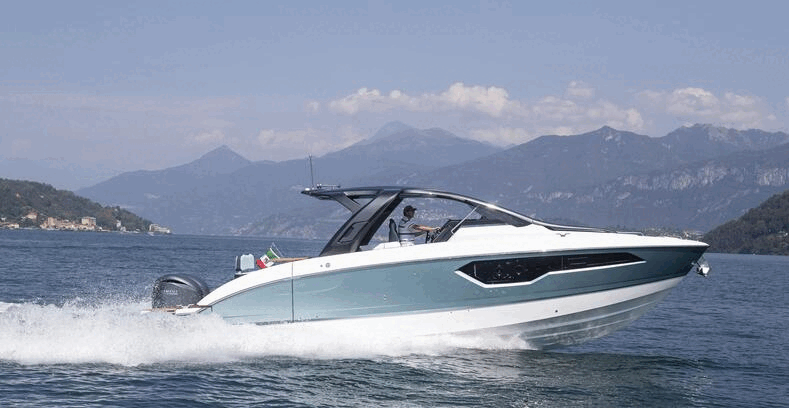I was very excited about the news of Reintjes Fortjes propulsion equipped on a Fipa Maiora 29 launched mid past Summer. This new pod propulsion opens a new dynamic to pods on super yachts, and does indeed put a new meaning to pod drives, so far very limited in the larger sizes unless you don't go for a triple or quadruple drives system.
Pod drives thanks to Volvo IPS and later on followed by the ZF Zeus drives has since 2005 gotten high attention first in the sub fifty feet cruisers, and then later on in the bigger fifteen meter plus units. These two most commercial known pods are very similar in concept inside, both are steerable, but do have different requirements to hull design and how they work in the water.
The Volvo IPS forward looking dual propeller units, on paper require no real hull changes although on facts it is known that it prefers a medium Vee from midships to aft, and a minus to fifteen degrees deadrise at stern. The Volvo IPS is only offered with engines from the Swedish engine maker.
ZF pods first introduced as Zeus had in its first two years production a licence agreement with Brunswick Mercruiser, but today it is available on any engine. I have seen it so far offered with Cats, Yanmar, and Cummins. The ZF pods works more in the traditional aft looking way and needs no real hull design change, accept for a tunnel where the pods are installed. ZF has also to its credit that it caters for many propulsion elements from its known gearboxes, to shafts, surface drive units, and now the pods.
The new Fortjest is very different from the two known commercial units because while still being dual propeller, one prop is in front and the other to the back of the pod. The pod is also non steerable working in a system with rudder. But the biggest advantage of this German made propulsion system is the fact that it can take from 400 up to 2800hp in the five units available at the moment, with bigger Horsepower versions possible on order. This opens a completely new world for pods, which will be interesting to see how it develops in a few years from today.



















No comments:
Post a Comment